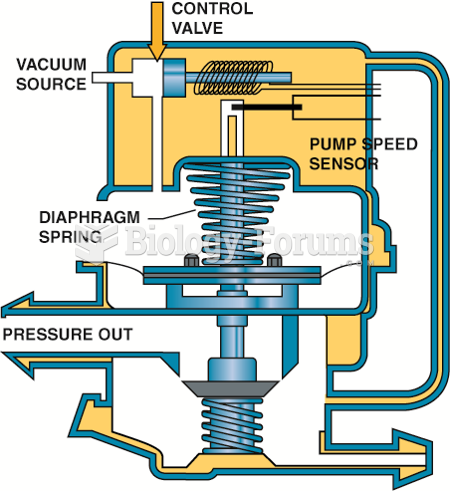|
|
|
The first oncogene was discovered in 1970 and was termed SRC (pronounced "SARK").
Walt Disney helped combat malaria by making an animated film in 1943 called The Winged Scourge. This short film starred the seven dwarfs and taught children that mosquitos transmit malaria, which is a very bad disease. It advocated the killing of mosquitos to stop the disease.
After 5 years of being diagnosed with rheumatoid arthritis, one every three patients will no longer be able to work.
Symptoms of kidney problems include a loss of appetite, back pain (which may be sudden and intense), chills, abdominal pain, fluid retention, nausea, the urge to urinate, vomiting, and fever.
Multiple experimental evidences have confirmed that at the molecular level, cancer is caused by lesions in cellular DNA.







